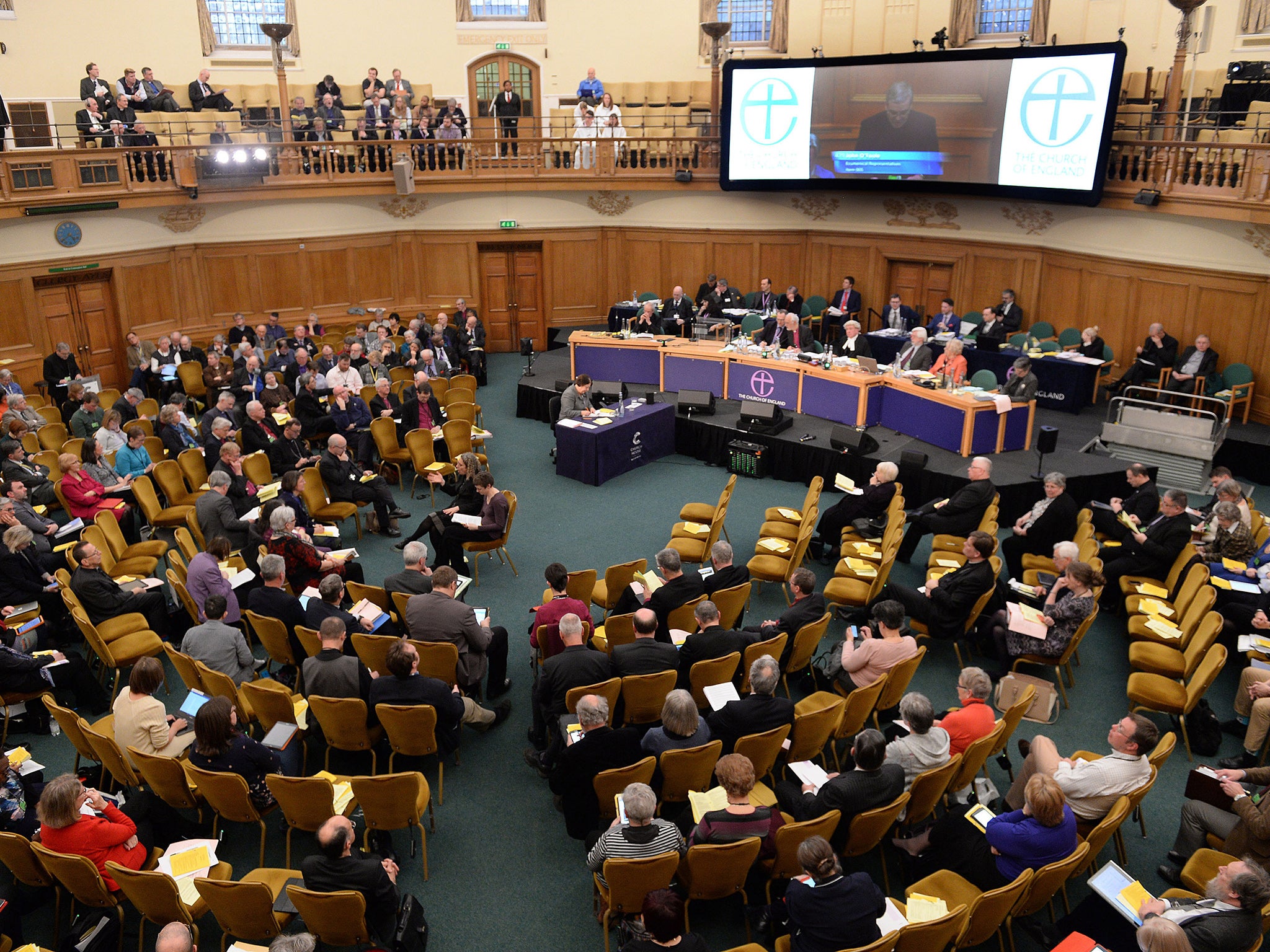Church of England to vote on 'welcoming' transgender people with special services
Bishops are considering a motion calling for transgender worshippers to be 'affirmed in their parish church'

The Church of England's ruling body is to vote on "welcoming" transgender people by providing special services to mark their transition.
The General Synod is considering a motion calling for transgender worshippers to be "affirmed in their parish church" as part of the "long and often complex process" of transition.
The vote comes after bishops overwhelmingly backed a motion calling for a ban on "unethical" conversion therapy for gay Christians.
Being gay is not a sickness or a sin, the Synod heard as it debated and voted on a private member's motion.
The vote came as a million people celebrated Pride weekend in London, which marks 50 years since the decriminalisation of homosexuality.
The meeting in York will decide on a motion, tabled by the Reverend Chris Newslands of Blackburn, on "welcoming transgender people".
The Church of England has stated its "fundamental belief" is that baptism can only be received once, therefore there is "no possibility" of the Synod approving a service re-baptising individuals in their new gender.
Rev. Newlands's motion says it "seeks to ensure that the C of E engages seriously with the issue of providing the opportunity of a liturgical marking of a person's transition which has the full authority of the C of E, as an appropriate expression of community and pastoral support to trans people".
The motion recognises that it cannot require clergy to offer to perform such a service if they "cannot in good conscience offer support in a liturgical marking of a person's transition".
Should a member of the clergy not agree, it hopes that they "may have the generosity to point anyone who asks to a church where the clergy are willing to provide such a liturgy".
The motion calls on the House of Bishops "to consider providing some nationally commended liturgical materials which may be used in parish churches and chaplaincies to provide a pastoral response to the need of transgender people to be affirmed following their long, distressing, and often complex process of transition".
Christian gay rights campaigner Jayne Ozanne's, has also submitted a motion calling on the C of E to endorse a statement branding the therapy "potentially harmful" with "no place in the modern world", signed by professional bodies including the Royal College of GPs and the UK Council for Psychotherapy in January.
The Archbishop of York, Dr John Sentamu, said during the debate: "The sooner the practice of so-called conversion therapy is banned, I can sleep at night."
The vote sends out a strong message to the world that the church does not see homosexuality as a crime, said Bishop of Liverpool Paul Bayes.
He said: "As the world listens to us the world needs to hear us say that LGBTI+ orientation and identity is not a crime.
"LGBTI+ orientation and identity is not a sickness. And LGBTI+ orientation and identity is not a sin."
The Synod has in recent years made headlines as the church tries to balance opposing views on homosexuality from its liberal and conservative wings.
The move is opposed by some conservative Christian groups, with one saying people seeking therapy want to "live full, Christian lives, within the natural order which God created".
A majority backed Ms Ozanne's motion in both the House of Clergy and the House of Laity, while all but one voted in favour in the House of Bishops.
Join our commenting forum
Join thought-provoking conversations, follow other Independent readers and see their replies
Comments
Bookmark popover
Removed from bookmarks